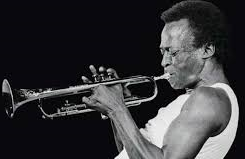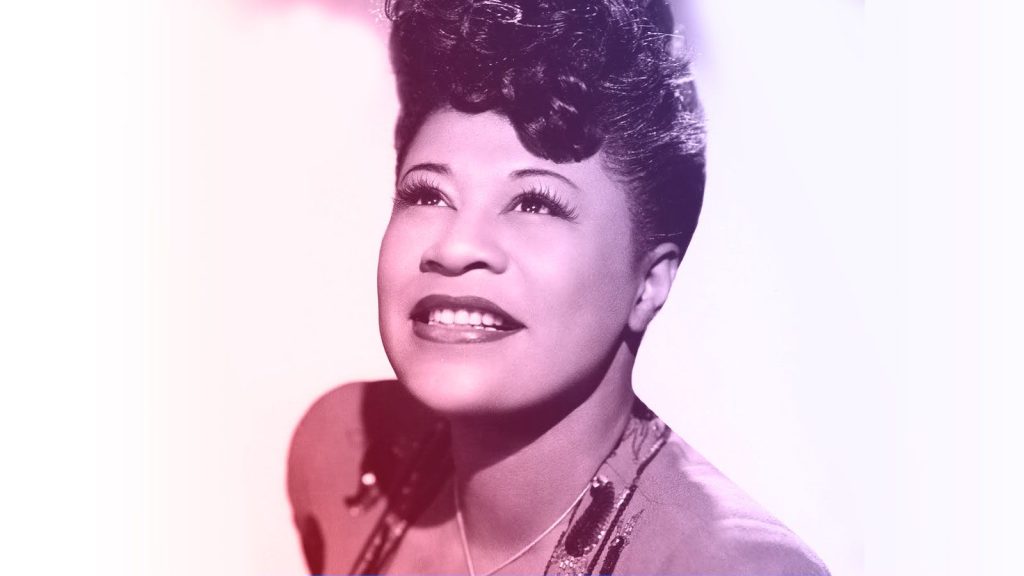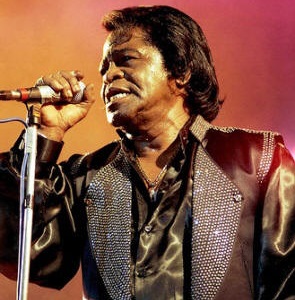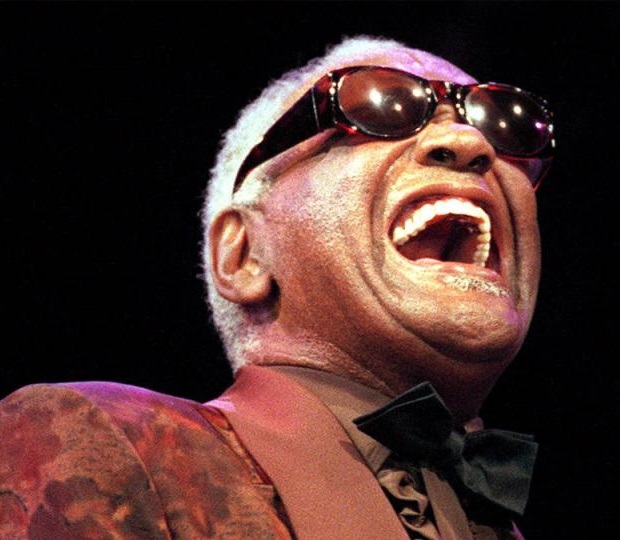February is Black History Month. This years theme is African Americans and the Arts. So throughout the month, I will highlight influential and well-known African American writers, musicians, and actors. For more information about Black History Month 2024 see the Association for the Study of African American Life and History and the National Museum of African American History and Culture.
In the vibrant tapestry of jazz history, few luminaries shine as brightly as Miles Dewey Davis III (May 26, 1926 – September 28, 1991). Hailing from a middle-class family in East St. Louis, his trajectory from a teenage trumpeter in St. Louis to a Grammy-winning jazz legend is remarkable.
Miles Davis’s affinity for music sprouted early in his life, nurtured by his parents – a dentist and a music teacher. His musical odyssey commenced in adolescence when he was gifted his first trumpet. Throughout his teenage years, he honed his craft by playing with various jazz bands in St. Louis. Post-high school, Davis delved into formal music education at Juilliard, but left early to join saxophonist Charlie Parker’s bebop quintet.
Finishing out the 1940s, Davis etched his name in history with the “Birth of the Cool” sessions, spearheading a pivotal moment that laid the foundation for the cool jazz movement. Transitioning into the 1950s, he assembled his quintet, featuring jazz luminaries like John Coltrane. His evolving style, characterized by a focus on scales over chords, culminated in the iconic “Kind of Blue” in 1959 – a modal jazz masterpiece that stands as one of the best-selling jazz albums of all time.
As the ’60s unfolded, Davis continued to push boundaries. Collaborating with Gil Evans, he delivered the orchestral jazz gem “Sketches of Spain,” earning his first Grammy. The late ’60s and ’70s witnessed Davis fearlessly venturing into jazz fusion, an innovative experiment blending rock, funk, and electronic elements. In 1969 he released “Bitches Brew,” earning him a second Grammy. It was a groundbreaking album that marked the inception of Davis’s “Electric Period,” characterized by experimentation with rock, African rhythms, and emerging electronic technologies.
Following a brief hiatus, Davis returned to the stage in 1981 with a series of live performances that culminated in the Grammy-winning double album “We Want Miles.” This marked the initiation of yet another transformation, as Davis collaborated with contemporary producers, infusing pop sounds and sampling into his music. His albums “Tutu” and “Aura” fetched him three more Grammy Awards in the ’80s.
Even after his 1991 passing, Miles Davis’s legacy endured. The posthumous release of “Doo-Bop,” a fusion of jazz, rap, and hip-hop, earned Davis his seventh Grammy in 1992. Another posthumous gem, “Miles And Quincy Live At Montreux,” featuring a retrospective with Quincy Jones, secured an eighth Grammy.
Miles Davis’s life and career epitomize the potency of artistic evolution. From the bebop stylings of the ’40s to the groundbreaking fusion experiments of the ’70s, his journey through the realms of jazz continues to captivate audiences globally. His adeptness at reinvention not only garnered him numerous accolades but also solidified his status as an enduring icon in the world of music. Miles Davis’s influence persists, transcending generations and genres, as his innovative spirit lives on in the ever-evolving landscape of jazz.
Awards & Honors
- 8 Grammy Awards, and 32 nominations
- 1960 Best Jazz Composition Of More Than Five Minutes Duration for Sketches Of Spain
- 1970 Best Jazz Performance – Large Group Or Soloist With Large Group for Bitches Brew
- 1982 Best Jazz Instrumental Performance, Soloist for We Want Miles
- 1986 Best Jazz Instrumental Performance, Soloist for Tutu
- 1989 Best Jazz Instrumental Performance, Big Band for Aura
- 1989 Best Jazz Instrumental Performance, Soloist (On A Jazz Recording) for Aura
- 1990 Lifetime Achievement
- 1992 Best R&B Instrumental Performance for Doo-Bop
- 1993 Best Large Jazz Ensemble Performance for Miles And Quincy Live At Montreux
- Rock and Roll Hall of Fame (inducted 2006)
Further Reading
- Miles Davis Website
- Miles Davis. National Endowment for the Arts.
- Miles Davis Songs, Albums, Reviews, Bio & More. AllMusic.com
- Miles Davis. UDiscoverMusic.com.
- Miles Davis. Biography.com.
- Miles Davis. Britannica.com.
- Mile Davis. Wikipedia.com.
- Miles Davis Discography. Wikipedia.com.




